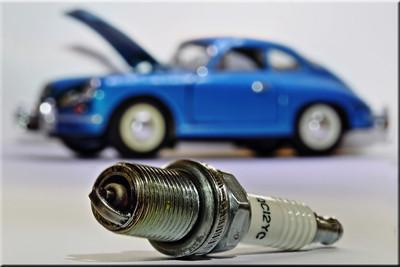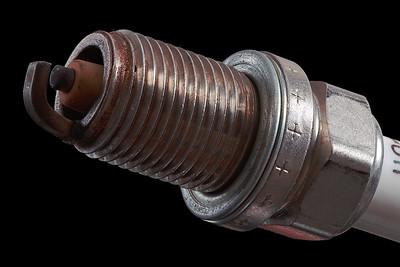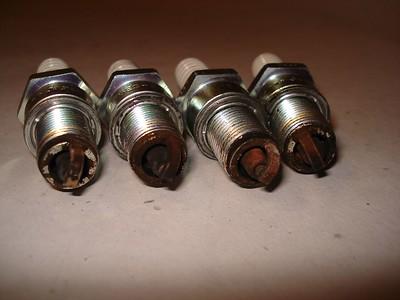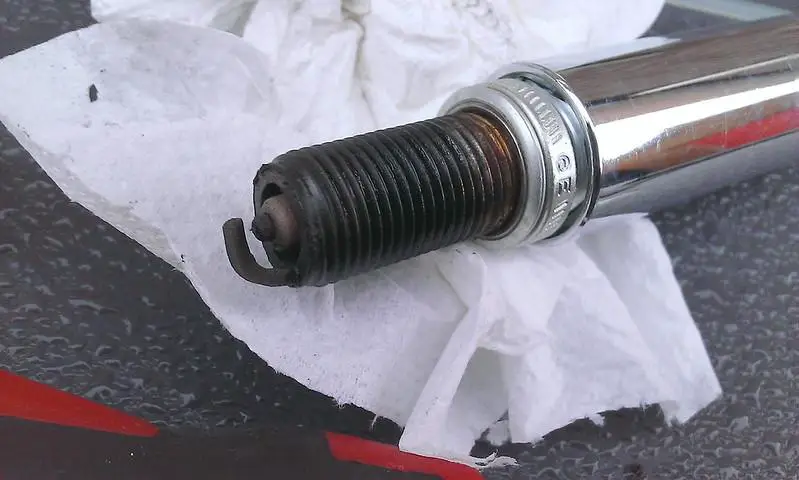It’s possible that your spark plugs are wet because you’re leaking oil, coolant, water, petrol, or gas.
There are a few potential reasons why your spark plugs might be wet with oil, coolant, water, petrol, or gas. One possibility is that there’s something wrong with the engine and it’s not properly sealed. This would allow oil, coolant, water, petrol, or gas to leak into the cylinders and on to the spark plugs.
Another possibility is that there’s a problem with the ignition system. This could cause problems with the timing of the spark and could lead to fuel getting on to the spark plugs. Finally, it’s also possible that there’s a problem with the air intake system which is causing too much fuel to be drawn into the engine.
The spark plug is the heart of the engine. It ignites the fuel-air mixture in the cylinders, which powers the car. A spark plug has a metal electrode that’s connected to the high-voltage ignition system of the car. The other electrode is a ceramic matrix that’s embedded in the center of the plug. When voltage is applied, it creates a spark across the gap between electrodes.
The spark plugs need to be replaced every 30,000 miles or so, depending on your make and model of car. You can buy replacement spark plugs at any auto parts store. Just be sure to get plugs that are compatible with your car’s ignition system.
The spark plug is essential to the running of your engine. If anything happens with it, like getting wet from gas or oil leaks for example; you need to take proper measures in order not to damage other parts and ensure efficient combustion which will result in better performance overall!
Why Are My Spark Plugs Wet With Oil?

When you have a burning engine and oil is leaking from your spark plugs, it might seem like the problem lies with them. However, this can also result from an excess of lubricating fluid seeping into their well—usually easy to differentiate when there’s soot or other combustion byproducts around.
- If you hear a sputtering noise when accelerating, there is most likely a leak in one of your mechanics. The corresponding ignition coil or spark plug wire will be wet as well due to oil leaking into its respective well from somewhere within the engine bay.
- It’s important to keep an eye on your engine and make sure it’s running smoothly. If you notice any black smoke coming out of the exhaust, or if there are white deposits around its tips after removing plugs for cleaning—this could be a sign that oil has found its way into combustion chambers due to tampering with seals/gaskets between sections within an auto part itself.
Oil leaking into spark plug well
It’s likely that oil is leaking into the spark plug well. There are a few possible causes of this, including a defective gasket or seal, worn valve cover gaskets, or a cracked engine block.
If the oil is coming from the valve covers, it can be caused by a leaky gasket or seal. The gaskets and seals can wear out over time due to constant exposure to heat and pressure. If the oil is leaking from the engine block, it could be caused by a crack in the block. This can happen if the engine overheats or if there’s too much strain on the engine.
Worn spark plug tube seal or O-ring
A worn out or damaged sealing system will allow for more leaks than what is normal. This may result in your engine being filled with fluid, which could lead to other major problems down the road such as corrosion and extensive damage at an already delicate temperature range where silicone parts like grips sealants exist.
Damaged spark plug tube
It’s possible for spark plug tubes in your cylinder head to crack, allowing oil contamination which can lead to many problems. For example some General Motors vehicles equipped with 3 6L V6 engines are prone towards this issue due technical service bulletin (TSB) advising dealership technicians of what needs done about it; replacing the entire thing will be costly both labor intensive but also financially speaking so getting an assessment right away could save you money down road.
External oil leak
External oil leaks are a pretty common issue, especially on older cars that have had their valve covers replaced with plastic ones. A leaking valve cover could potentially allow for some of your engine’s precious fluids – such as transmission fluid and motor oils-to seep down into the spark plug wells where they will be contaminated by any loose admission from outside sources like dirt or dust particles sitting atop them without being covered properly in the first place.
Oil entering the combustion chamber
A properly tuned engine requires oil to enter the combustion chamber so that it can burn completely. If there is not enough room for this process, then you may see some wetness on top or around spark plugs as well as at their threads due in part from excess water vaporization while trying fight against Oxygen molecules seeking out other areas within your car’s machinery where they’re more likely found than right next door with abandon – namely inside air cleaners and mufflers since these two sections both serve an important function: removing fumes before they escape outside again.
What will happen if your spark plugs are oil-contaminated?

If your spark plugs are oil-contaminated, it will cause two main problems: 1) Your engine will run poorly due to misfiring spark plugs, and 2) you’ll likely experience increased exhaust emissions.
Misfiring spark plugs can cause the engine to run unevenly and result in less power output. Additionally, if the oil accumulates on the electrodes of the spark plug, it can create a resistance to sparking and further impact engine performance. Increased exhaust emissions means that unburned fuel will be released into the environment, which is harmful for both people and animals.
The damage that can be caused by oil in a spark plug is extensive, and will most likely lead to bigger problems down the road. Warping or breaking valves could result from an increase of pressure while burning ish heat builds up inside your engine which leads to head gasket failure leading even further complications.
Can you Drive with Oil on Your Spark Plugs?
It depends on the type of oil. If it is a light oil, like engine oil or WD-40, then it is not advisable to drive with it on the spark plugs because it will eventually drip down into the engine and cause damage. However, if it is a heavier oil, like Vaseline or motor oil, then it is less likely to drip down and can be driven without causing any damage.
It’s always best to err on the side of caution and remove any type of liquid from the spark plugs before driving, just to be safe. If you’re not sure how to do this, your car mechanic can easily show you how in a matter of seconds.
Can you Drive with Petrol on Your Spark Plugs?
Yes, you can drive with petrol on your spark plugs. However, it is not recommended, as it can cause damage to your engine. Petrol is a solvent and will dissolve the insulation around the spark plug wire, causing a short circuit. This can result in the spark plug not firing correctly, which can lead to engine damage.
Can you Drive with Water on Your Spark Plugs?
It’s not safe to drive with water on your spark plugs. If the water gets into the engine, it will cause misfiring and affect the performance of the car. In severe cases, it could even damage the engine.
It’s important to remove any water that collects on the spark plugs as soon as possible. A wet spark plug can easily short out, potentially causing a fire. So always make sure to keep an eye on your spark plugs and replace them as soon as they get wet.
How do you fix oil on spark plugs?

It’s important to fix oil on spark plugs because the oil can create a dielectric barrier between the plug and the spark plug wire. This barrier will prevent electricity from flowing through the plug and wire, which will in turn prevent the engine from running.
There are a few ways to fix oil on spark plugs. One way is to remove the spark plugs and soak them in gasoline for a few minutes. Another way is to use a tool called a “spark plug cleaner” to remove the oil from the plugs. Let’s fix the problem in the easiest way.
Remove the valve cover and inspect the head gasket
If the valve cover is removed and the head gasket is inspected and found to be in good condition, then the oil on the spark plugs can be blown off with compressed air. If the head gasket is not in good condition, then it will have to be replaced before the oil on the spark plugs can be blown off.
Remove the Spark Plugs
You’ll need to remove the spark plugs to clean them. The easiest way to do this is to use a spark plug socket and wrench.
Once the plugs are out, you can clean them using a wire brush or a dedicated spark plug cleaner. Be sure to remove all of the oil and carbon build-up from the plugs before reinstalling them.
Clean the Head and Valve Cover
The first step is to clean the head and valve cover. This will remove any oil or dirt that may be preventing the new plugs from seating properly.
The second step is to check the gap on the new plugs. The gap should be between 0.028″ and . 060″. If the gap is off, you can use a plug gauge to adjust it.
The third step is to install the new plugs. Be sure to apply a light coating of oil to the threads of the plug before installing it. Tighten the plug until it’s snug, but don’t over tighten it. You should be able to feel resistance when tightening it with your hand.
Install the New Valve Cover Gasket
The most popular way to fix oil on spark plugs is to install a new valve cover gasket. This will help to keep the oil from seeping out and onto the spark plugs. Make sure that you also clean off any excess oil or dirt from the area so that the gasket can properly seal. If there is too much build-up, it could prevent the gasket from functioning correctly and cause leakage in the future.
Install The Spark Plug Gasket
The first step is to install the spark plug gasket. This will form a seal between the engine and the spark plug, preventing oil from leaking into the combustion chamber.
Once the gasket is in place, apply a thin layer of clean engine oil to the threads of the spark plug. This will help keep them from seizing up when you try to install them.
Now you can install the spark plugs. Be sure to tighten them securely, but do not over-tighten them or you could damage the threads.
FAQ
Is it bad if my spark plugs have oil?
Yes, it’s bad if your spark plugs have oil. Oil on the spark plugs can cause them to misfire, which can lead to all sorts of problems with your engine. In fact, it’s usually a good idea to replace your spark plugs every time you change your oil. That way, you can be sure that they’re in good condition and aren’t going to cause any problems with your engine.
Can oil on spark plugs cause a misfire?
Yes, oil on spark plugs can cause a misfire. If there is too much oil on the spark plugs, it can prevent the spark from occurring and create a misfire. It’s important to make sure that the engine is properly serviced and that all of the oil levels are correct so that this doesn’t happen.
What does burnt oil look like on a spark plug?
A black, oily deposit on the electrodes and insulator tip is a sign that the oil is being burnt. This can be caused by a number of factors, such as an engine that’s running too hot, low oil levels, or a dirty air filter. If you have any of these problems, it’s important to address them as soon as possible to prevent further damage to your engine.
Final Words
It’s likely that your spark plugs are wet with oil because your engine is burning too much oil.
This could be caused by a number of issues, such as worn out piston rings or a cracked cylinder head. In any case, it’s important to have the problem diagnosed and fixed as soon as possible, since an engine that burns too much oil will not last very long.

